For the past six months, Harvard Law School students and alumni have been working with legal professionals to create strategies promoting diversity in the legal workplace. These were unveiled on June 22 at Diversity Lab’s Diversity in Law Hackathon, co-sponsored by Harvard Law School Executive Education and Bloomberg Law. Diversity Lab is an organization dedicated to improving diversity at corporations and law firms, and this was the first of two hackathons to be held this year.
Excitement was in the air at Wasserstein Hall last month, as the teams gave their presentations to an all-star panel of judges. Some teams wore custom-made T-shirts or even track suits for the occasion. Some even had a musical soundtrack: Introducing an app called ClearLead, one team led a clap-along to the old reggae hit “I Can See Clearly Now.” As the judges considered the pitches, hackathon attendees were also asked to vote with their wallets, by depositing play money into ballot boxes. This proved so popular that voters were allowed to keep the play bills as souvenirs.
“I am blown away by the quality of the projects and the ideas,” said Paul Francisco, chief diversity officer and head of workforce development programs at State Street Corporation, who served as one of the judges for the competition. The panel of eight judges included Bloomberg Law Vice President Melanie Heller, former Akin Gump Strauss Hauer & Feld Chair R. Bruce McLean, Jacksonville Jaguars Senior Vice President Megha Parekh ’09, current Bryan Cave Leighton Paisner Chair Therese Pritchard, Senior U.S. District Judge Gregory Sleet, Fiduciary Trust General Counsel Anne Trinque, and Fortune Magazine Senior Editor Ellen McGirt.
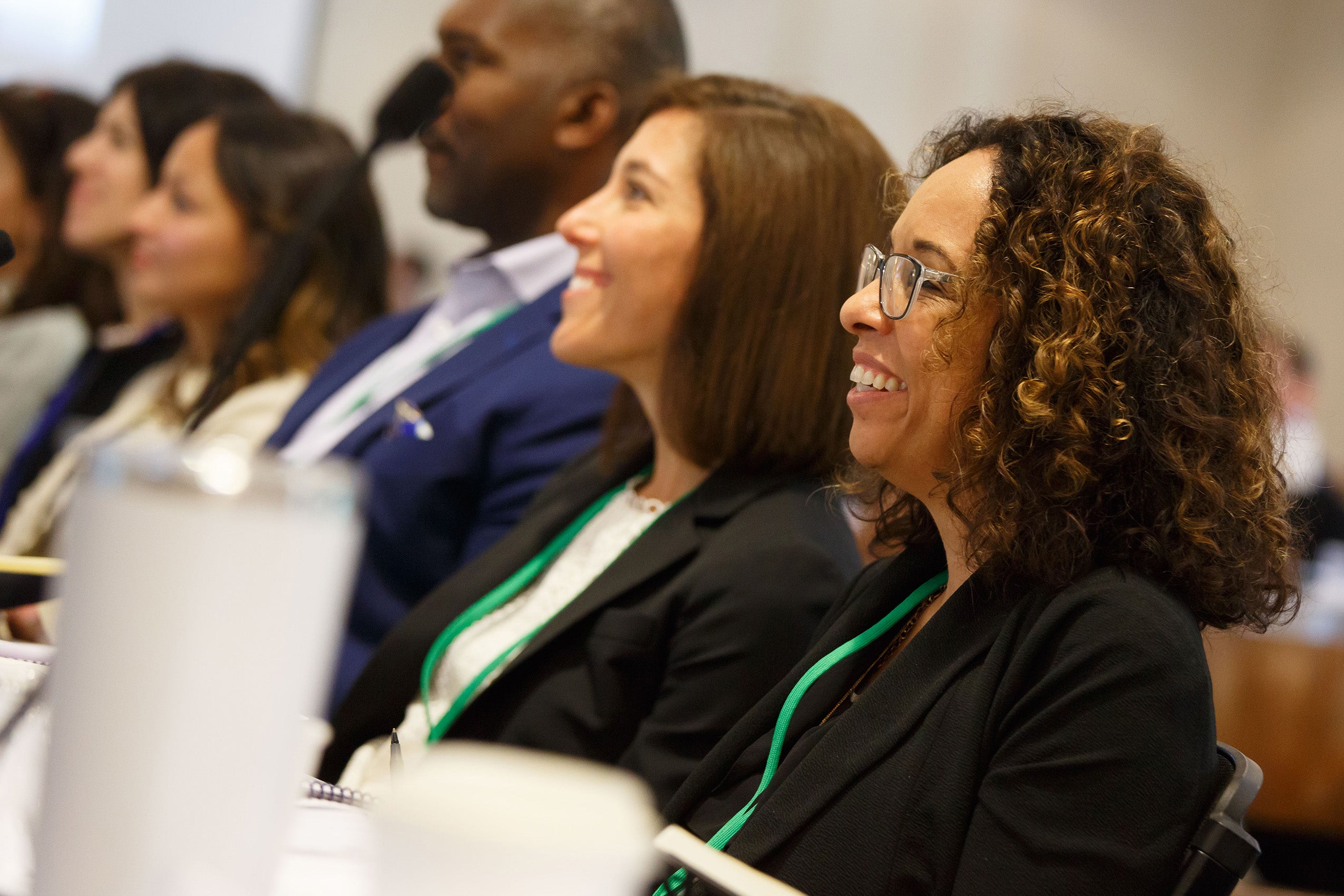
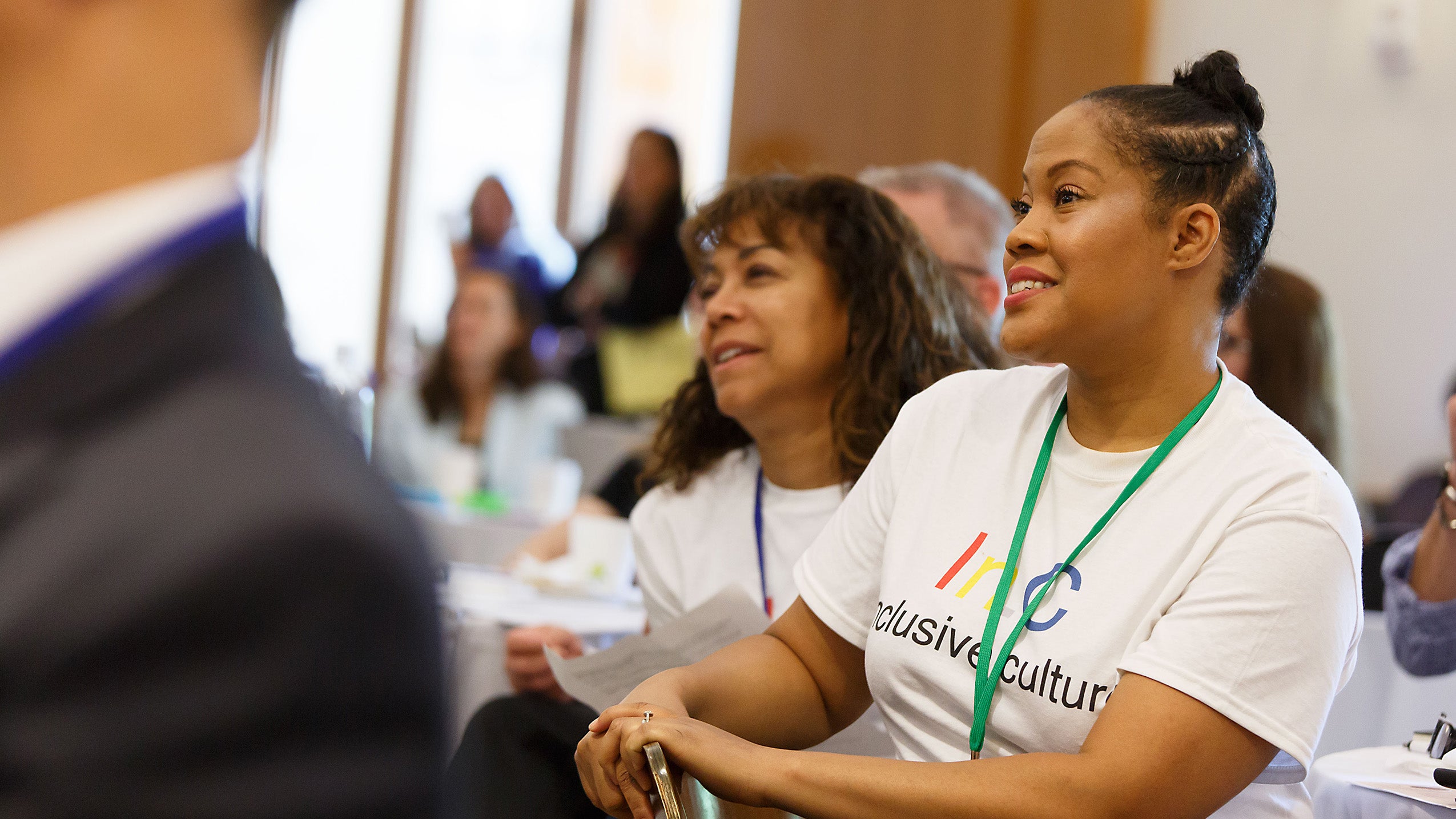
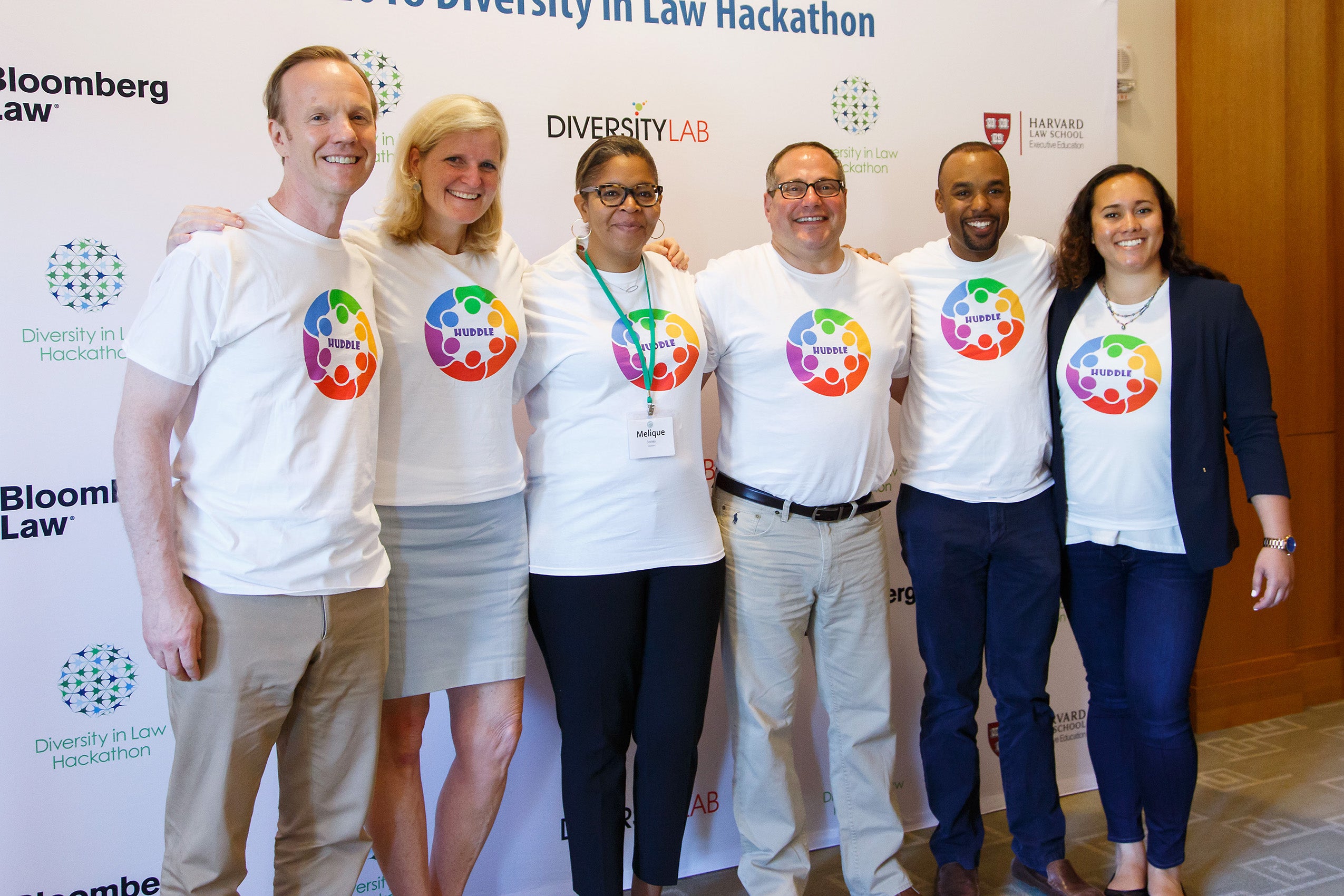
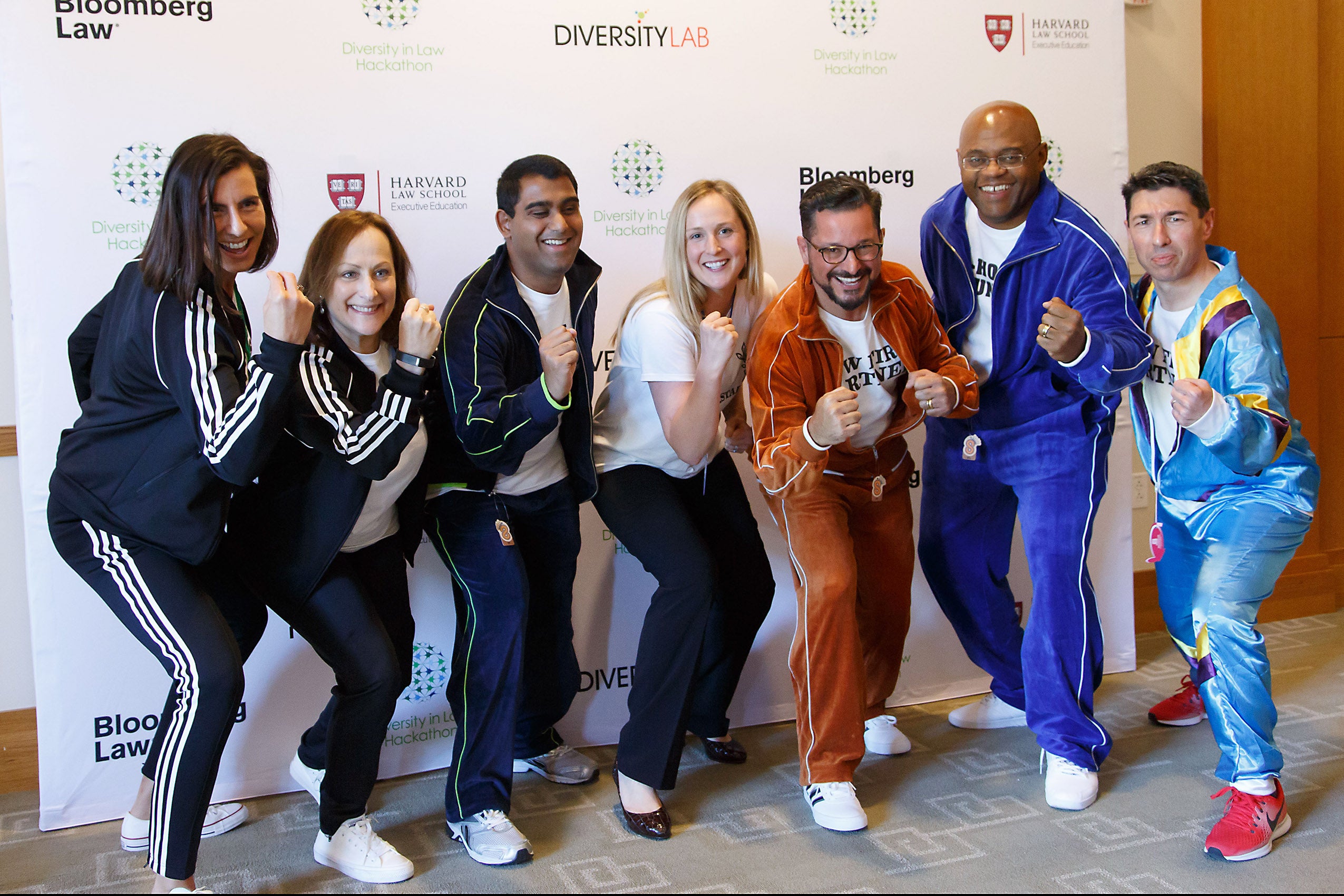
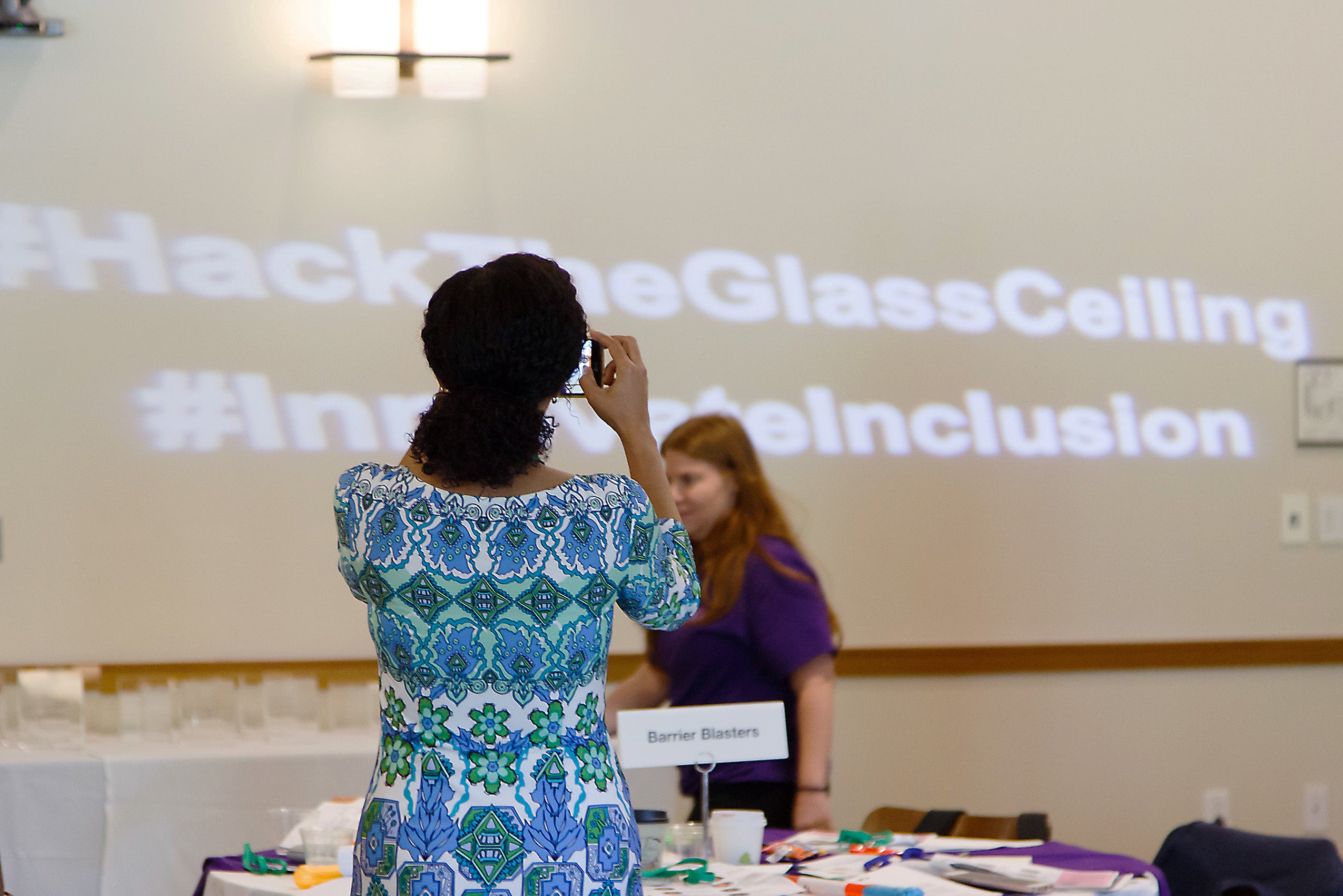
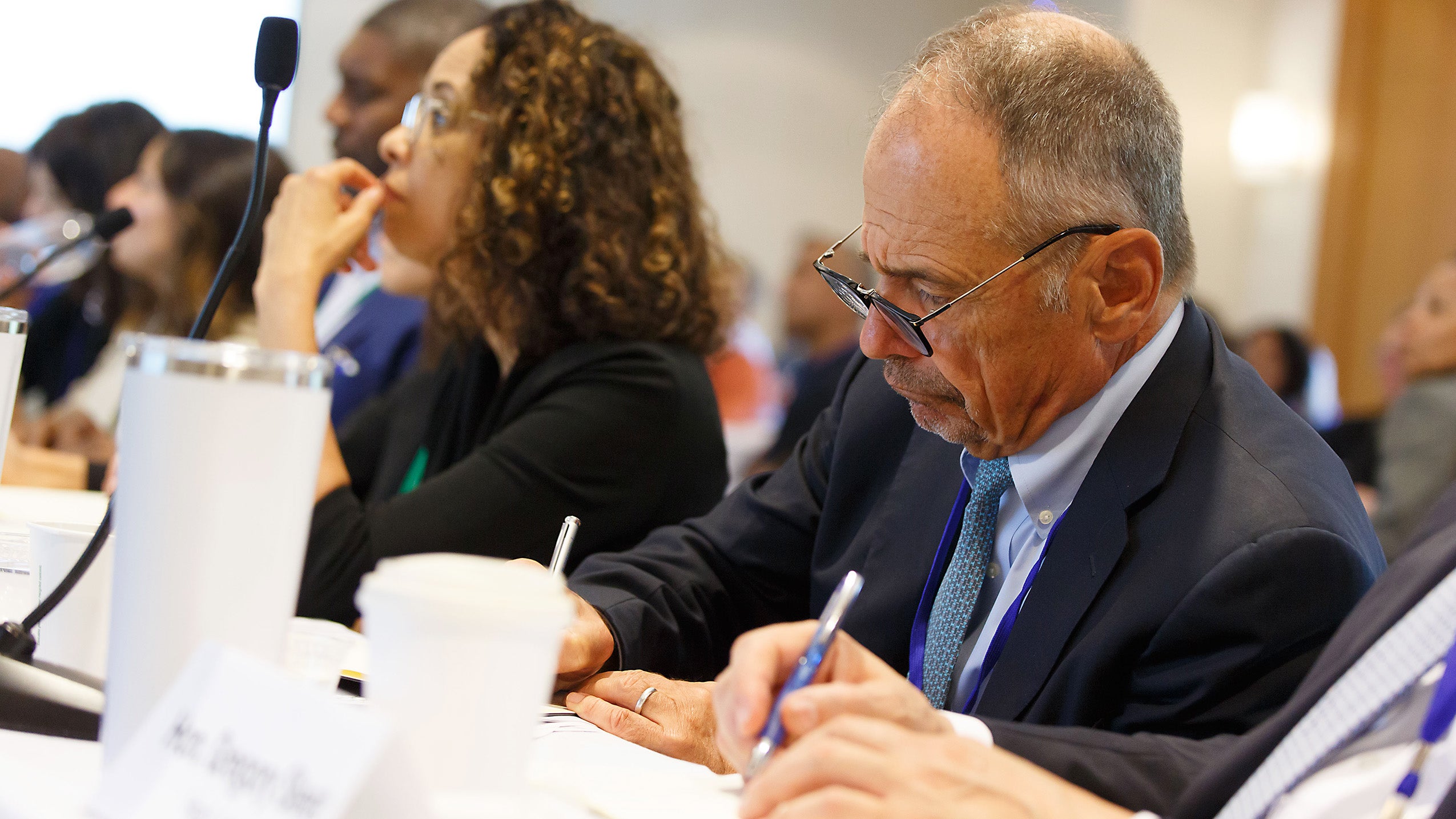
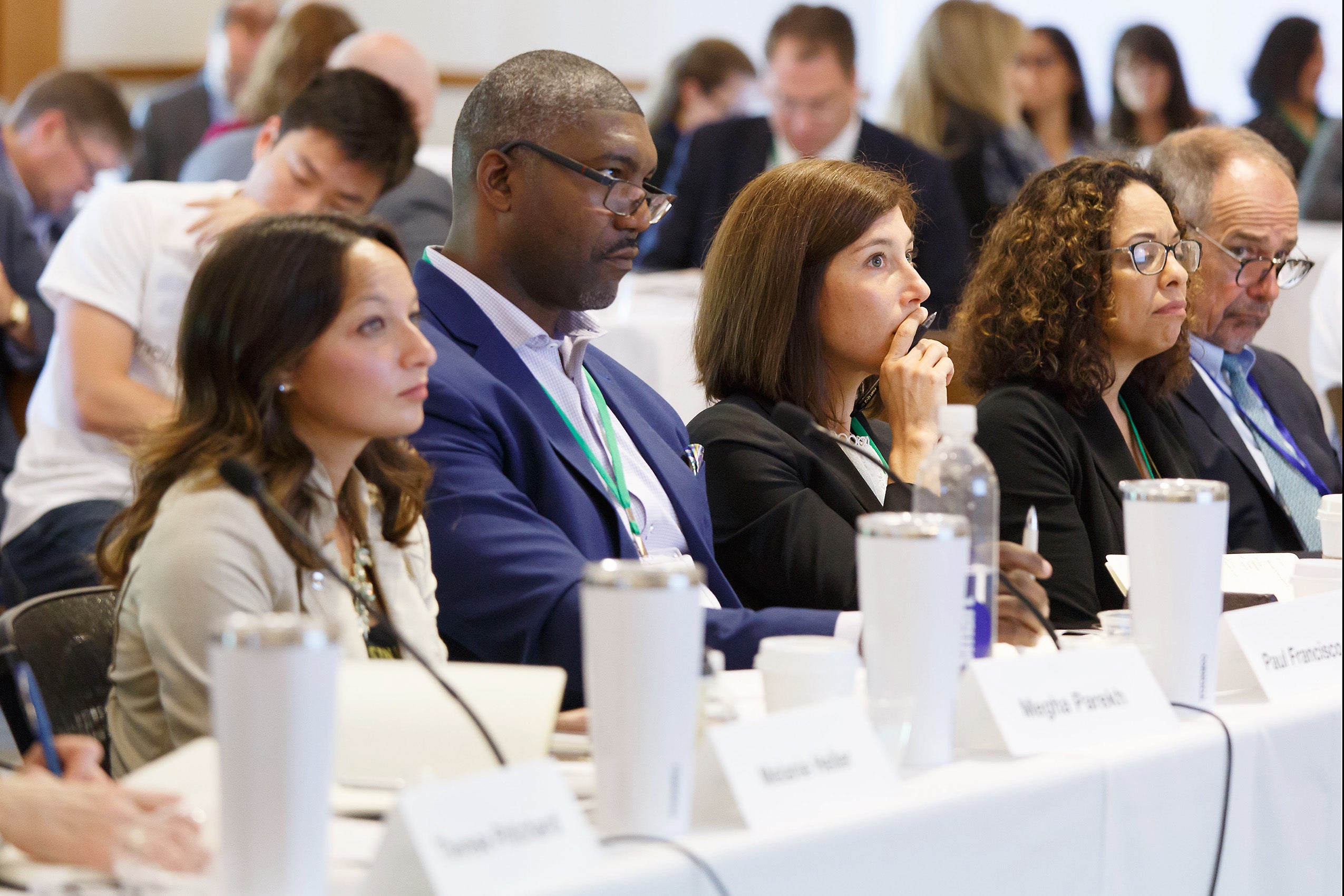
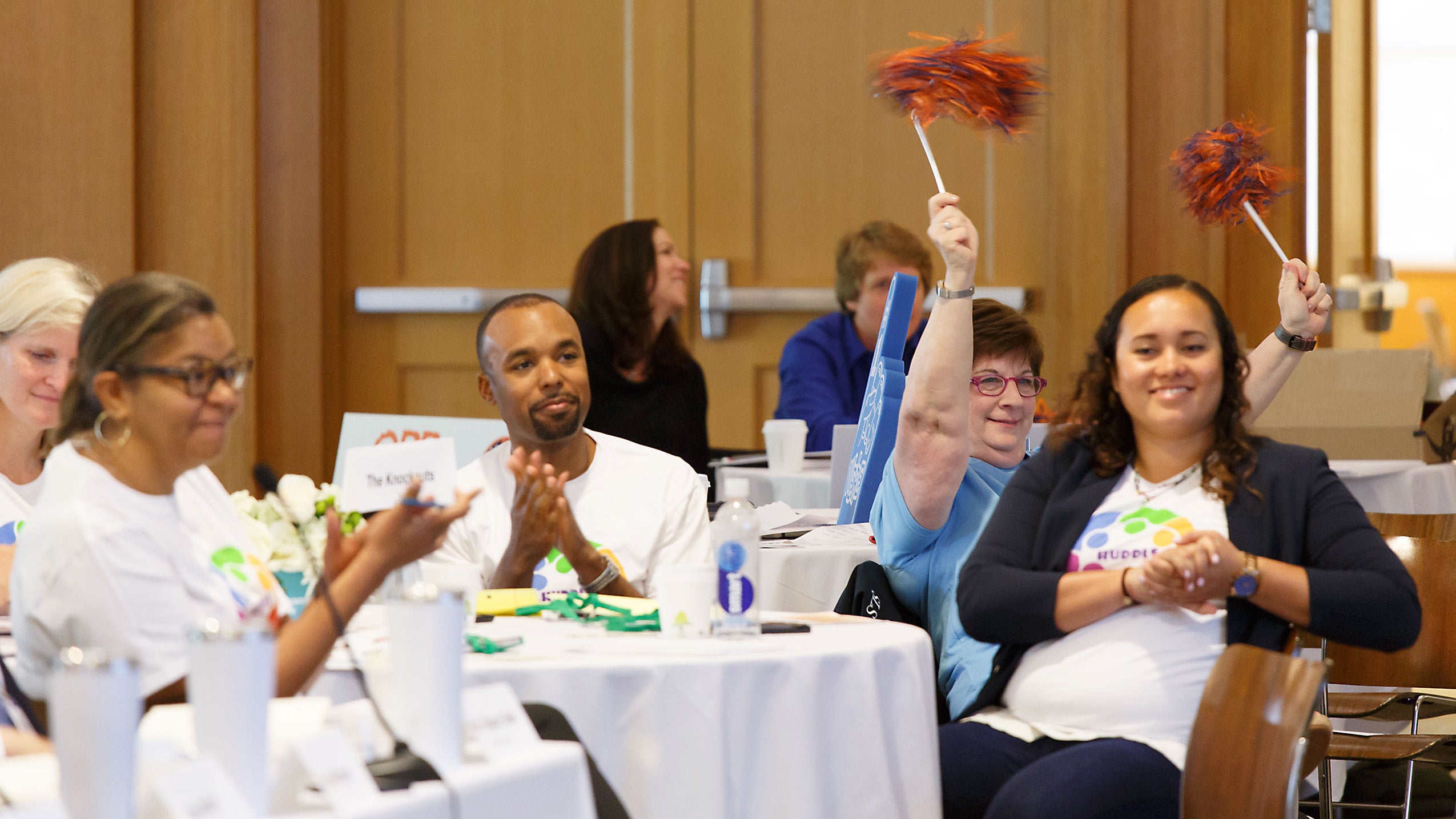
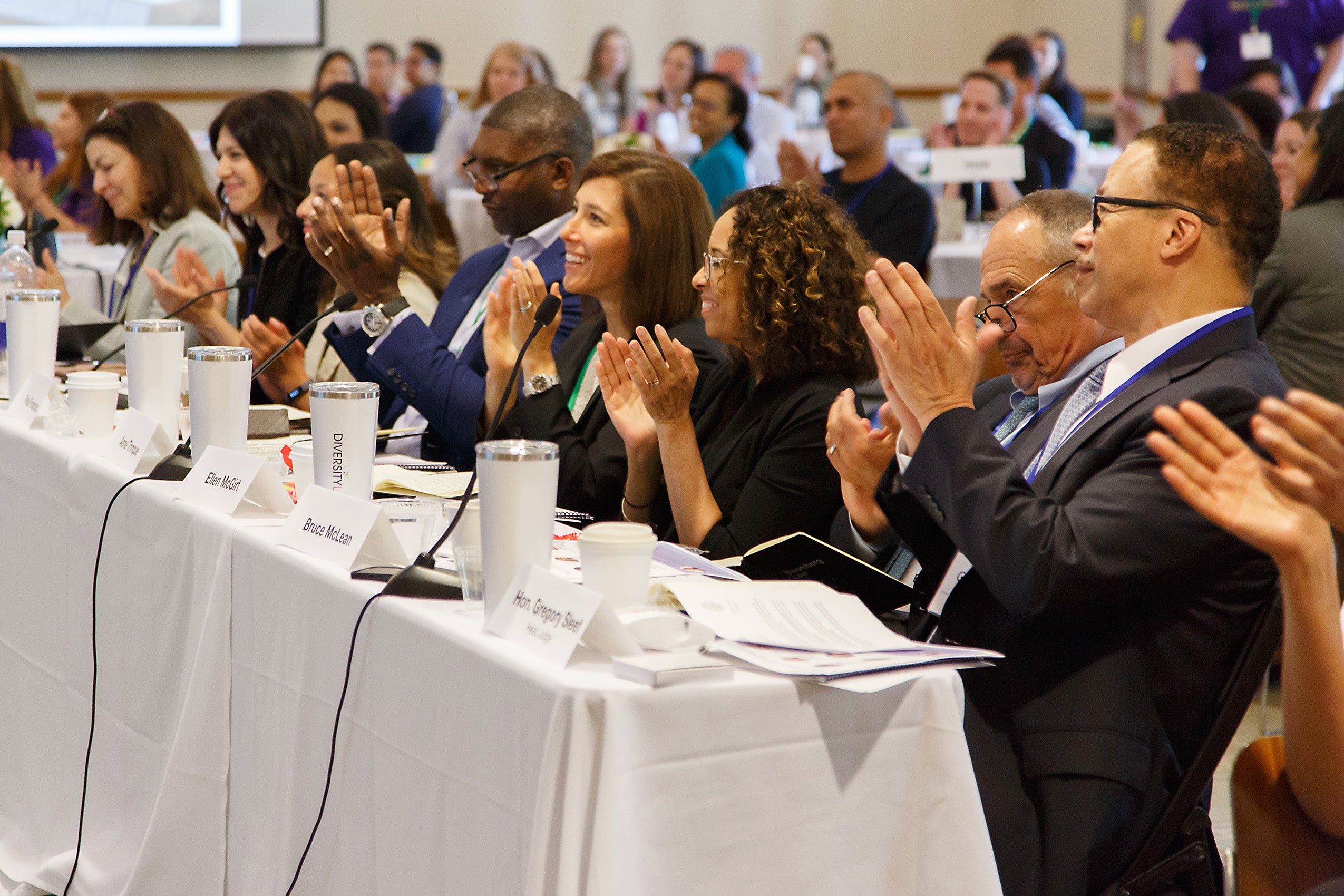
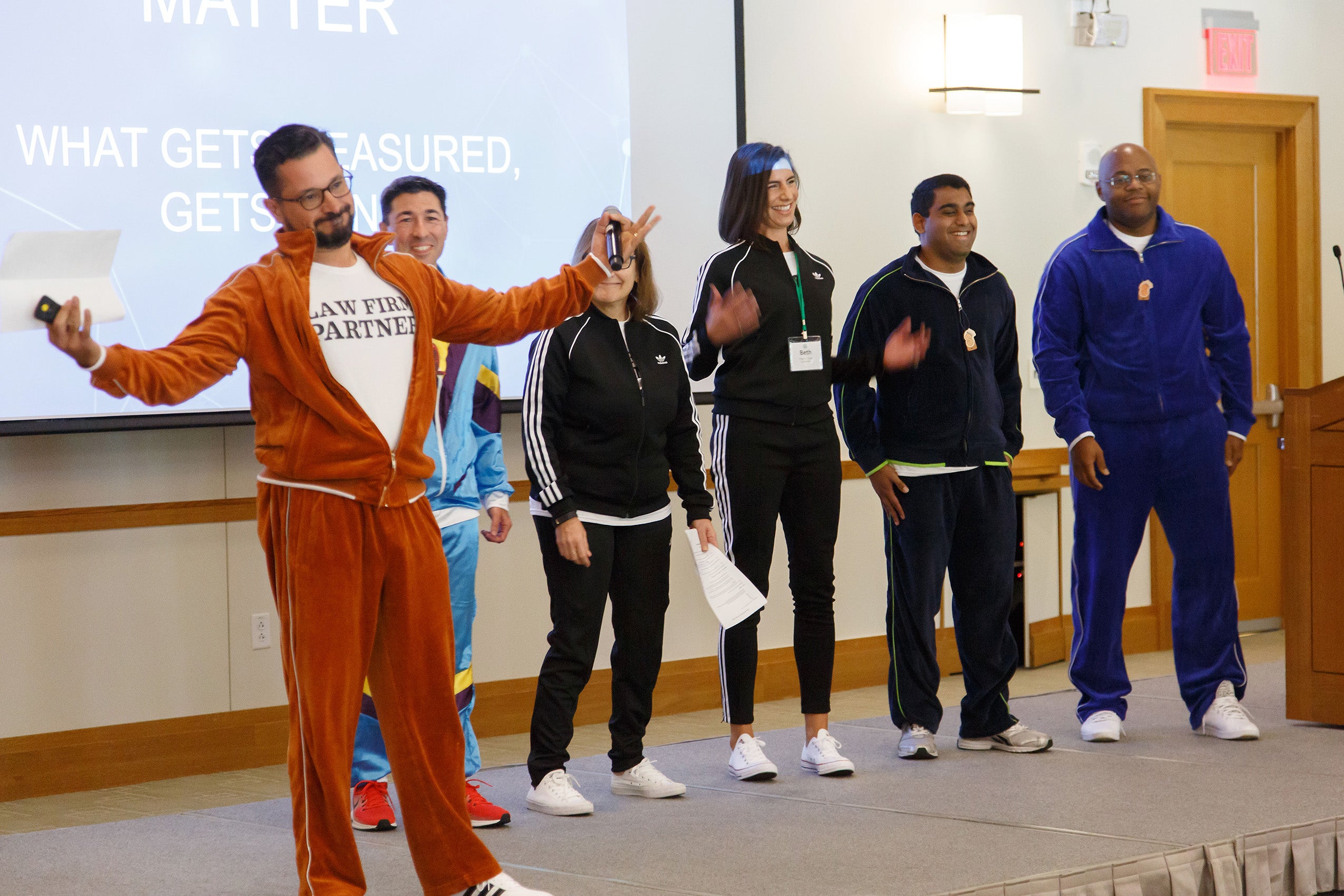
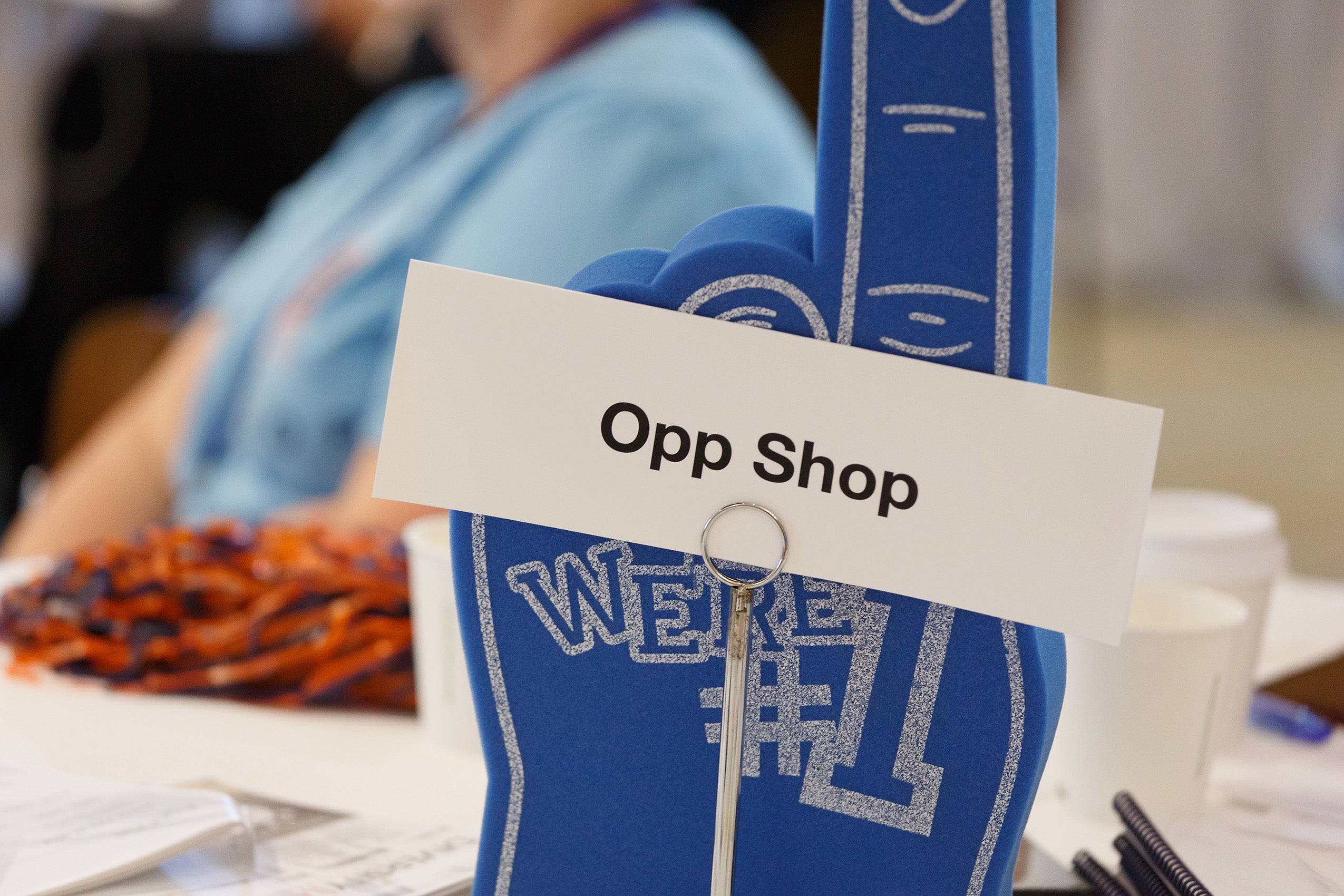
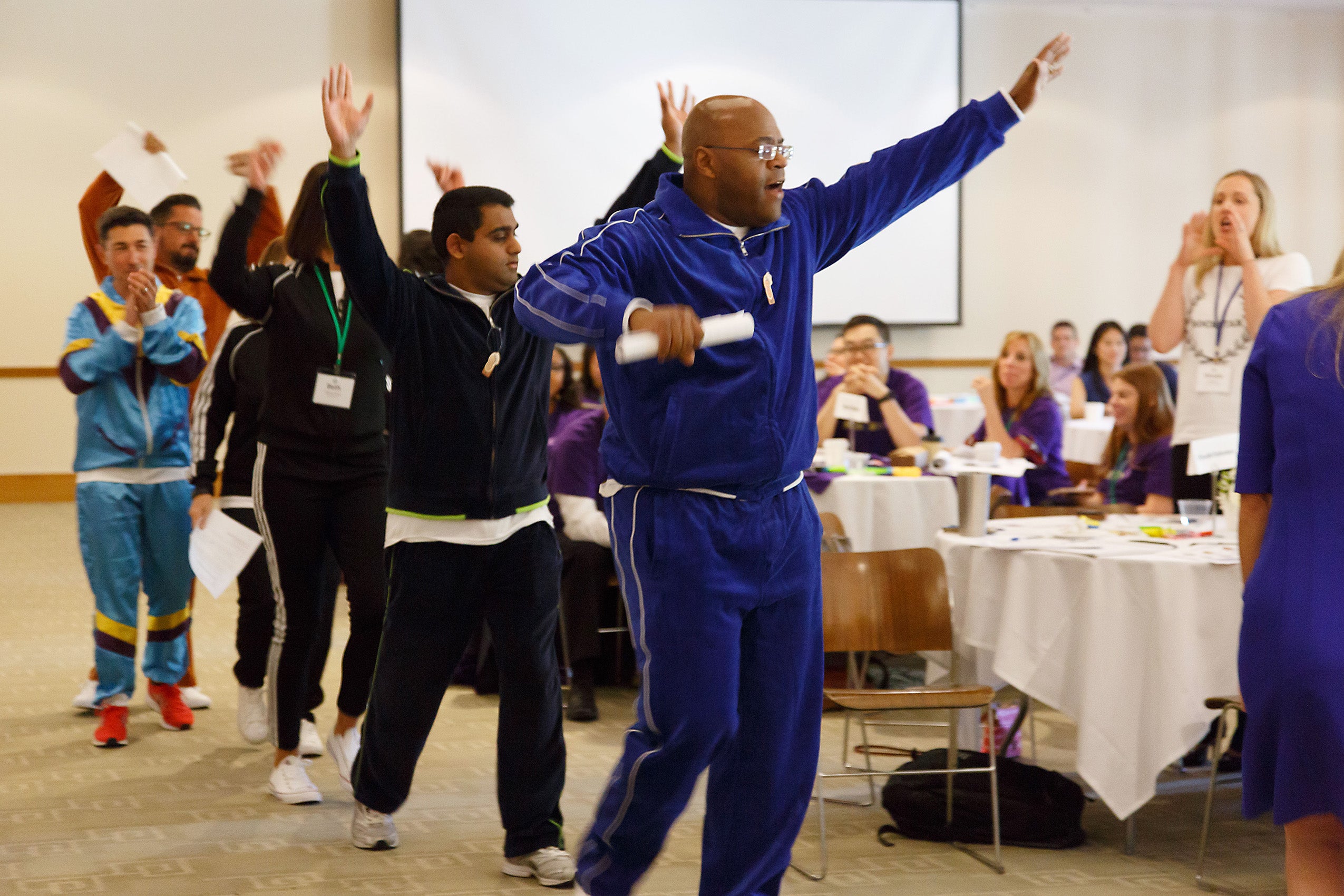
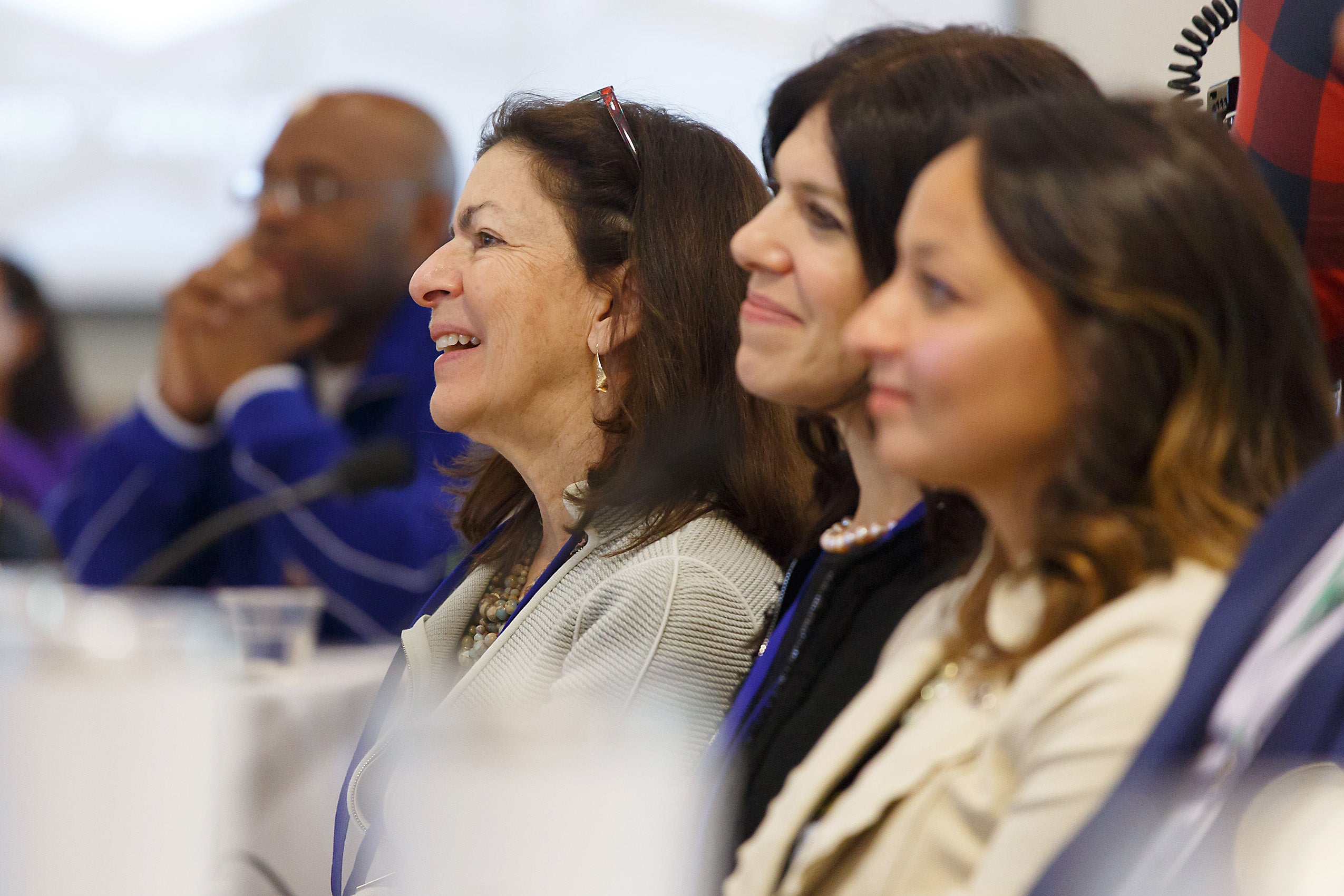
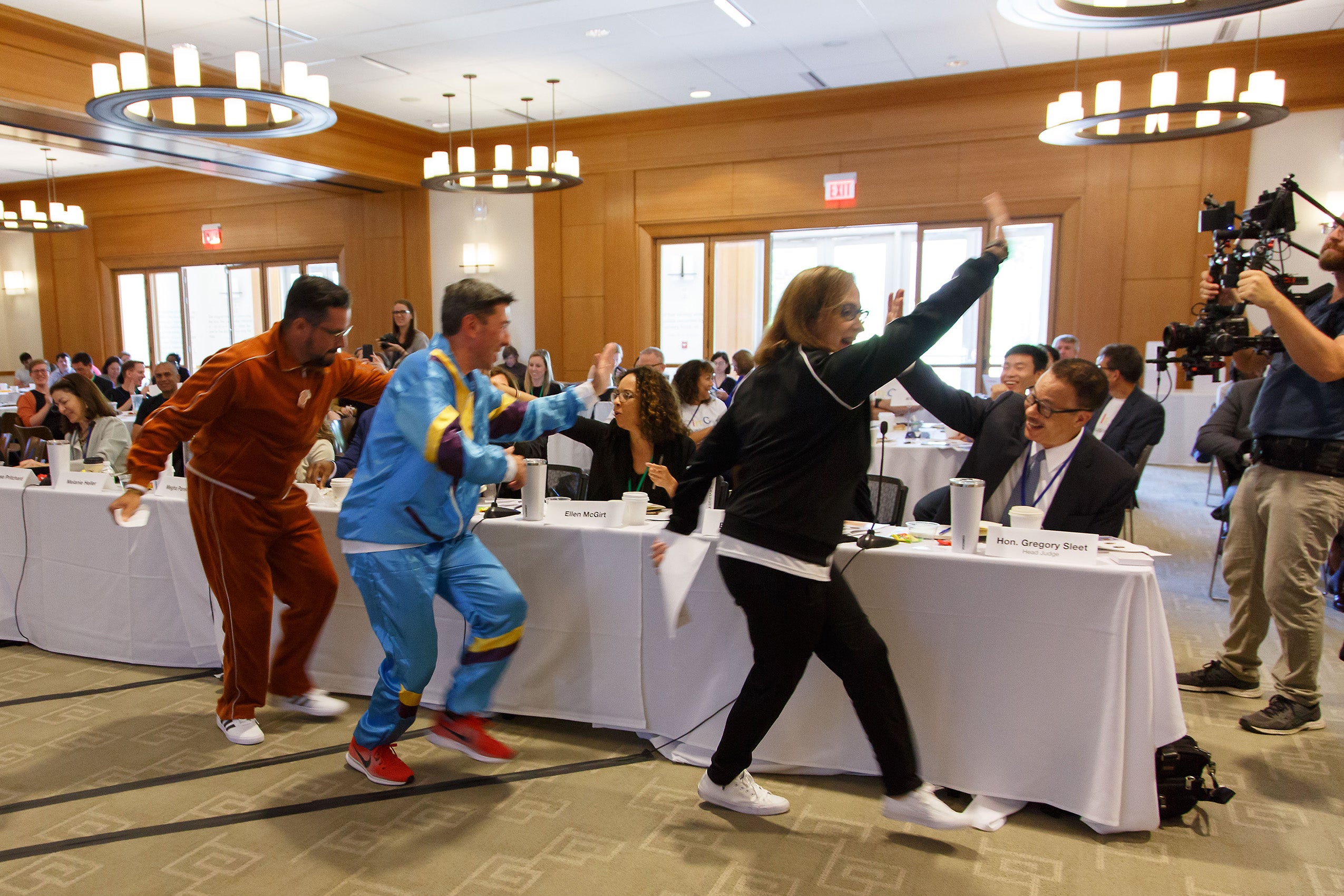
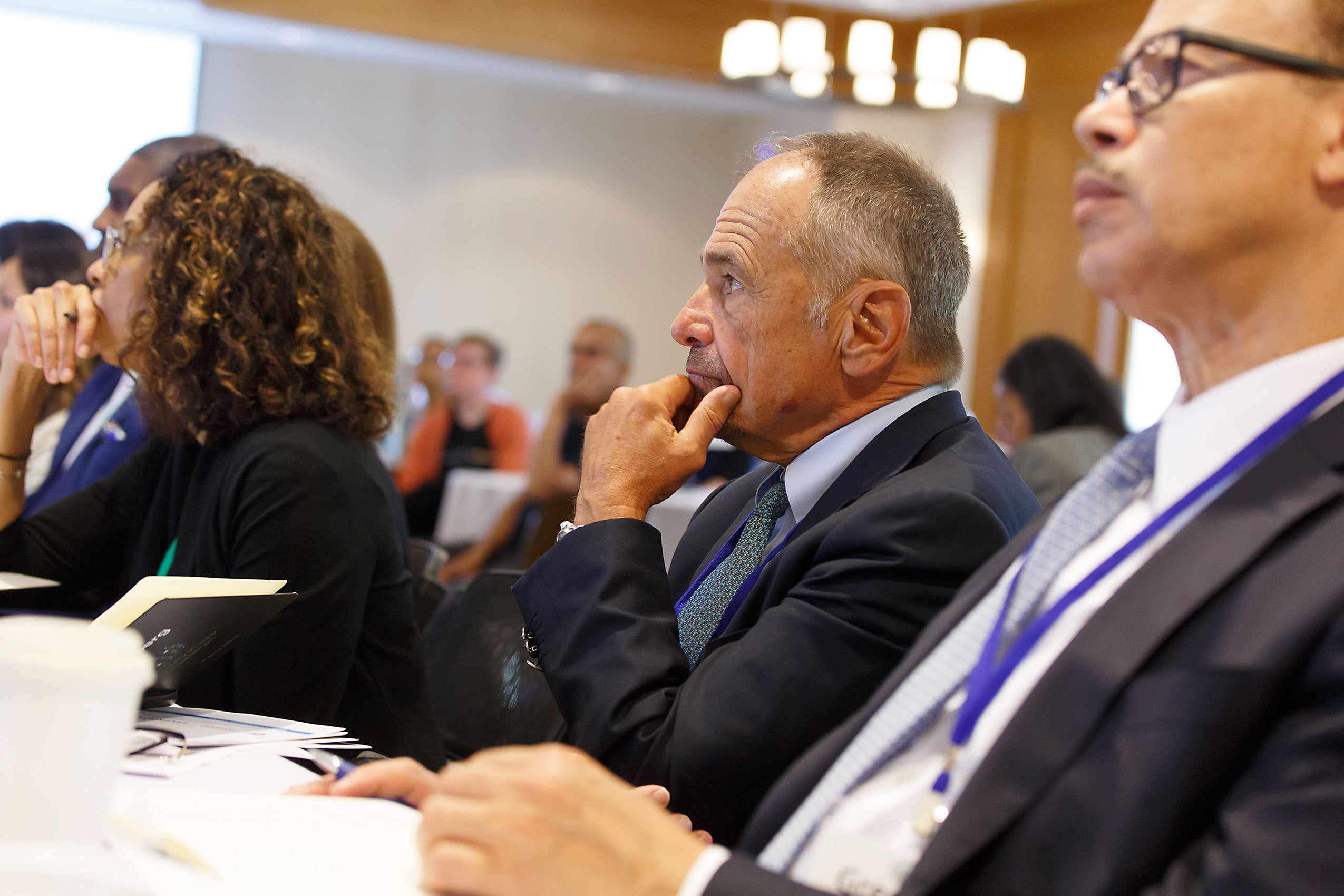
“This shows the collective power that diverse and innovative thinking can bring to bear in a whole industry,” Francisco said. “There were big ideas, big thinking. There were systematic approaches to solving issues that have for decades plagued the law industry. I was impressed by the quality, the rigor, the evidence and the metrics that the solutions can bring to bear. These solutions can make the industry better and more inclusive. I can’t wait to see what comes out of it in terms of the next big idea for inclusion and the law.”
By partnering with the Dean of Students Office, Exec Ed was able to connect nine HLS students with Diversity Lab teams for this unique opportunity. The teams originally came together at Pound Hall last February, under the supervision of Harvard Law School Professor of Practice Scott Westfahl ’88, Exec Ed faculty director. During this team launch phase, Professor Westfahl lead the teams through exercises on building effective teams and driving innovation — concepts he teaches in Exec Ed programs. This foundation prepared the teams for the collaborative process of ideating to solve tough challenges around diversity and inclusion. And the teams themselves were diverse, each including one HLS student alongside practicing lawyers and high-level business executives. The teams were asked to identify a problem related to diversity, and to create a fix for it. Topics to be covered included the influence of unconscious bias, gaps in leadership and parity in pay, equal access to opportunities, and the “diversity pipeline” of lawyers entering the profession.
In many cases, the teams applied technical solutions, developing problem-solving apps. One team created an “OppShop,” where job opportunities could be offered without revealing the applicant’s personal details (this was tied with another app, NextGen 10, as the crowd favorite). The team behind ClearLead addressed the sometimes-mysterious nature of who gets promoted and why. Their video presented the hypothetical case of a black female lawyer who is a top achiever in her firm, yet gets passed over for promotions. Their solution was an app that would quantify the process — by directly stating the firm’s core competencies, making the selection process transparent, and holding leadership accountable. Once the criteria are clearly spelled out, unconscious bias would be less of a factor, explained team member Sarah Bacot ’18. And firms with a higher rating would naturally attract a stronger pool of talent.
“I learned so much I don’t know where to start,” said Bacot, whose team (called PRIZM) included MetLife and HP Inc. executives, and partners at Blank Rome and Wilson Sonsini Goodrich & Rosati. “One thing that’s been valuable to me as a law student is to see how these issues that we talk about everyday play out in actual work environments. It really gave me insight into what it means to be a practicing attorney.”
The first-place team, #ShowMeTheNumbers, created a portal called the D&I Dash, or Diversity & Inclusion Dashboard — a database of diversity information that would be available to law firms, in-house legal departments, and job applicants. The information would cover recruitment, retention, promotion and pay equity. HLS student Paras Shah ’19 worked on this team, alongside heavy hitters including Mo Cowan, vice president of Global Litigation and Legal Policy at General Electric, and Beth Ybarra Crean, associate general counsel at Bank of America.
As Shah explained after the hackathon, his team began by interviewing legal clients, who don’t always feel they’ve been properly represented. “We started by interviewing people about their experiences, and learned they were frustrated with a lack of inclusion. So the D&I Dash synthesizes two sets of data — the first is the traditional data with head counts and numbers [of women and minorities at the firm]. The other is the more qualitative one, related to people’s experiences about inclusion.”
A rising 3L, Shah has also been working with the Pipeline to Practice, a national organization that supports diverse law students and professionals at key early stages of their career. “It wasn’t directly related to my work with D&I Dash, but the Pipeline has been absolutely instrumental for me to have the support I needed as a diverse law student, and to give me the network and confidence that I needed,” he said.
The second-place team, called the Knockouts, began their presentation by standing silently at the platform for 30 seconds. “While we were standing here, many of you made assumptions about our backgrounds and our appearances,” said HLS student Leilani Doktor ’19. “If we were junior partners you would bring those assumptions while you were evaluating us.” To address this issue of unconscious bias, the team developed a feedback app called Huddle, which would facilitate an objective job review based solely on performance. Huddle would use a multiple-choice format, in which specific goals would be addressed based on the needs of a given project. As the team explained, this would keep supervisors from making shortcuts based on office politics or social familiarity; and would help retain talent by making the feedback specific and constructive.
As Doktor explained in an interview, the key to Huddle would be specific language for evaluations. “You can’t just say something like ‘She did fine on this assignment,’ which isn’t helpful to anyone. Instead we ask for factual ways that someone did well– something more precise, a focus on the actual events. We populated it with language that was chosen to cut through bias.” A bit of design expertise also came into play, as Huddle was created to have a similar look and functionality to the Uber app.
There were no losers in this hackathon, because, as Westfahl explained at the end of the day, the Diversity Lab is committed to working with each of the teams. “The power of diversity with law firm partners, in-house lawyers and students from all sorts of different backgrounds who were firmly committed to change inspired everyone here today,” he said. “I’m thrilled that there are potentially groundbreaking ideas that have surfaced and will be moving toward implementation. The law school will continue to be at the heart of these discussions and diversity is truly the most important priority for us.”
As part of the Diversity Lab’s next hackathon, scheduled to begin at Northwestern Chicago in July, participants will work to implement some of the strategies that were presented this month. Meanwhile, last month’s HLS participants can look back with pride at what they’ve accomplished. “Our team did conference calls every week, and I just realized how much I’m going to miss those,” Bacot said. “You don’t often find yourself saying that you’re going to miss a conference call.”
